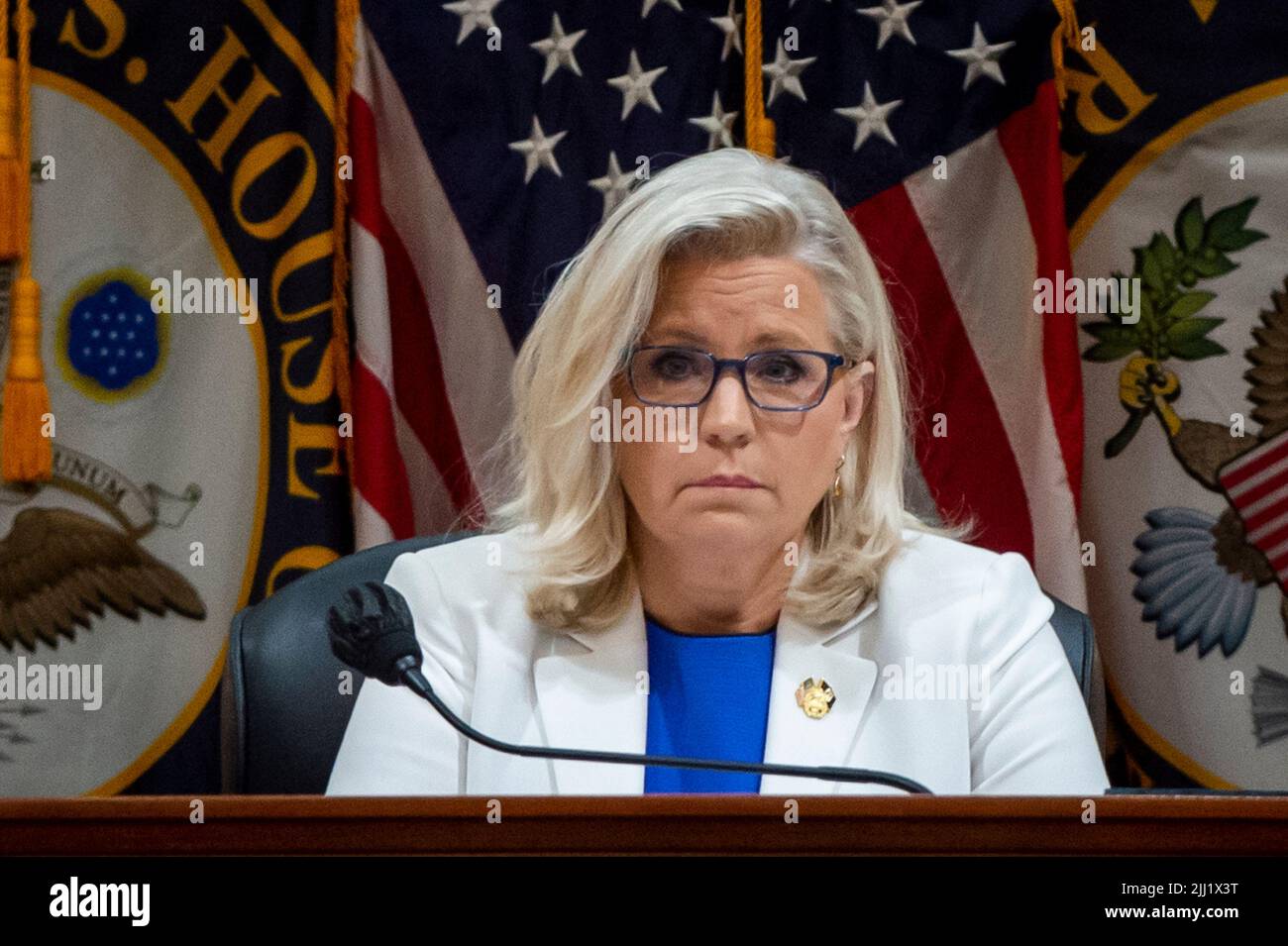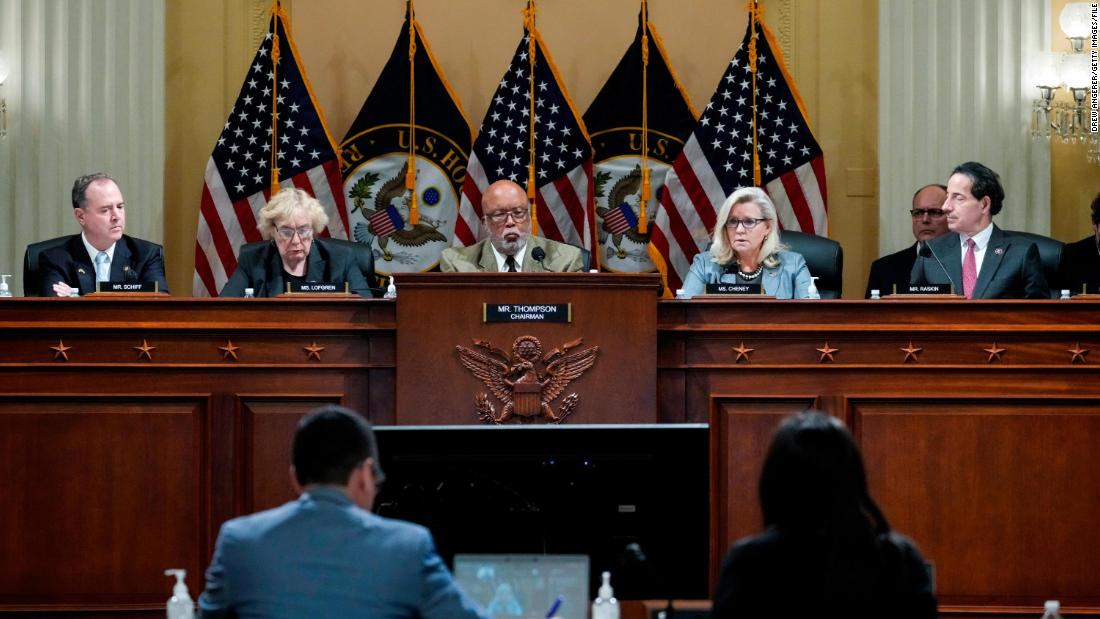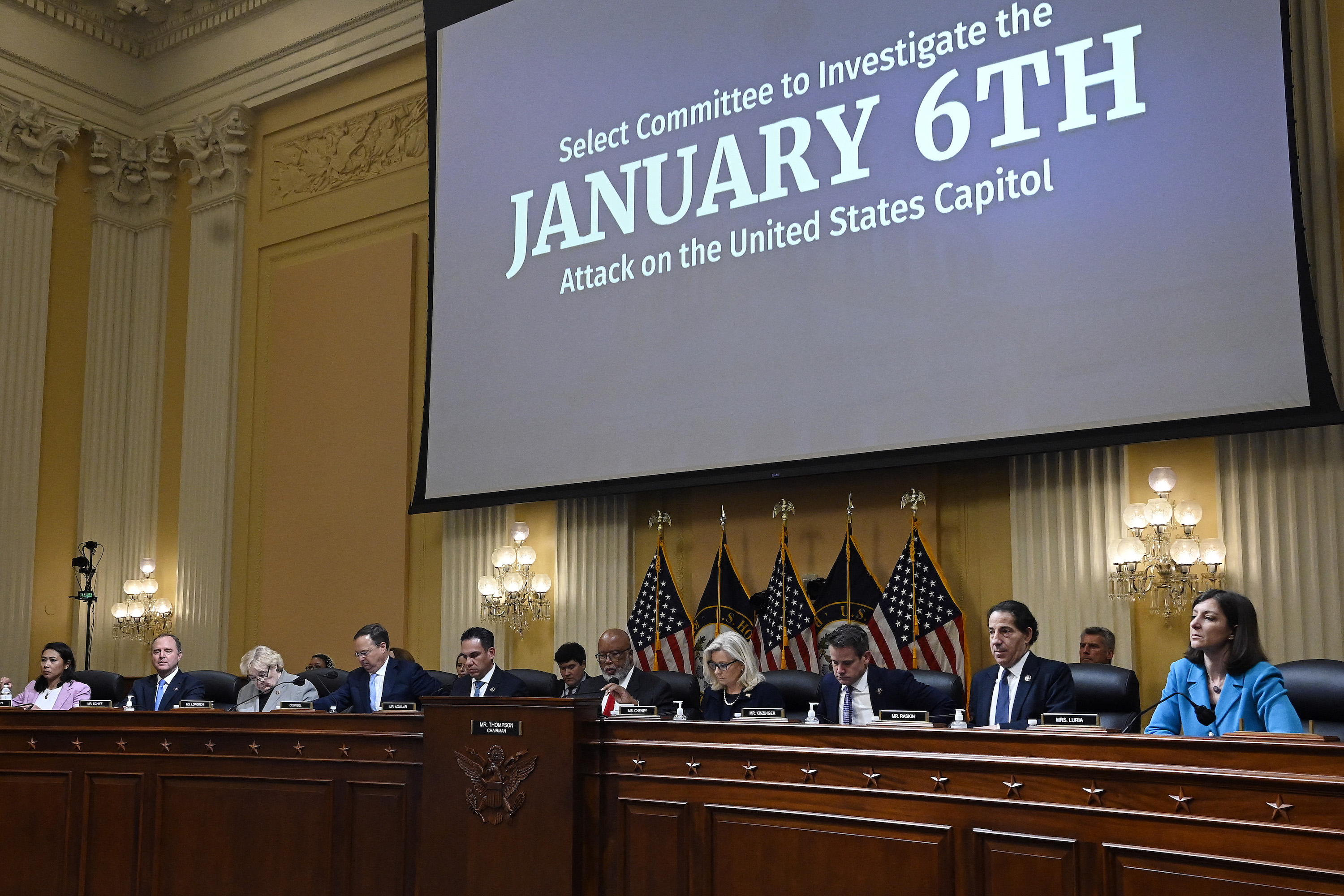Table Of Content
- Committee Video of January 6 Attack on the Capitol
- Synopsis of fourth hearing
- Simultaneous investigations by the Justice Department
- Select Committee to Investigate the January 6th Attack on the United States Capitol
- Jan. 6 committee votes to refer Trump to DOJ on multiple criminal charges
- CNN's Audie Cornish: It was valuable for the committee to focus on consequences of Trump's lies for the public

The committee also revealed that several Republican congressmen, including Representative Scott Perry of Pennsylvania, now the chairman of the conservative Freedom Caucus, asked for a presidential pardon after Jan. 6. The committee is publicly telling the story of how a sitting president undertook unprecedented efforts to overturn a democratic election, testing the guardrails of American democracy at every turn. Mr. Trump and his allies challenged President Biden’s victory in the courts, at state houses and, finally, in the streets. The House select committee investigating the Jan. 6, 2021, attack on the US Capitol has concluded that former President Donald Trump was ultimately responsible for the insurrection, laying out for the public and the Justice Department a trove of evidence for why he should be prosecuted for multiple crimes.
Who is Sarah Matthews and why is she testifying in the Jan. 6 hearings? - PBS NewsHour
Who is Sarah Matthews and why is she testifying in the Jan. 6 hearings?.
Posted: Sat, 06 Jan 2024 08:00:00 GMT [source]
Committee Video of January 6 Attack on the Capitol
The hearing also featured video of some of the witnesses who had appeared before the panel in private sessions, which was much more dramatic than the usual dry reading of transcripts. It made for a more persuasive case, especially since many of those talking were allies, aides or appointees of Mr. Trump. Many Republicans in Congress, whose leaders initially supported the idea of an independent commission, have spent the months since the assault trying to rewrite its history and downplay its severity. “It’ll change history,” predicted Representative Adam Kinzinger of Illinois, the other Republican on the committee. Later, the panel played a video montage of rioters storming the seat of American government.
Synopsis of fourth hearing
While Mr. Perry is known to have played a key role in undermining the 2020 election and in Mr. Trump’s efforts to resist a peaceful transfer of power, Ms. Cheney’s comments appeared to be the first time the committee had publicly confirmed Mr. Perry’s efforts to seek a pardon. An important backdrop as the hearings continue next week is that the vast majority of Republicans still believe the election was stolen, and that number has stayed steady. The hearing concluded with a hint of what was to come in the next hearings, which committee members hope will show how Mr. Trump was personally responsible for the worst attack on the Capitol since the British ransacked it in 1814 and that he remains a threat to the American democratic experiment. One of the witnesses, a British documentary filmmaker named Nick Quested who was embedded with the extremist Proud Boys, gave testimony that indicated that group’s leadership had conspired with another extremist organization, the Oath Keepers, well ahead of the riot to plan an attack that would breach the Capitol. The hearing also featured the testimony of a documentary filmmaker, Nick Quested, who was embedded with the right-wing group the Proud Boys during the attack.
Simultaneous investigations by the Justice Department
The Illinois Republican said that although he didn't expect to be called to be part of the committee, "when duty calls, I will always answer." "What caused a mob of Americans to think that they were somehow supporting the Constitution when they tried to disrupt the constitutional process of counting the Electoral College votes?" she asked. During a news conference last year, Lofgren acknowledged "deficiencies in management" of the force but emphasized "that's not what spurred the attack." He previously crafted legislation with Rep. John Katko, R-N.Y., that would have established an independent commission to investigate the events of Jan. 6.
Synopsis of sixth hearing
Ms. Edwards described in detail the difficulty she faced trying to fend off the crowd, which ultimately overwhelmed police and left more than 140 law enforcement officers injured. Caroline Edwards, a Capitol Police officer who is believed to have been the first injured during the riot, testified in chilling detail about the first breach of police lines, in which she was crushed beneath bike racks that were pushed on her and a handful of other officers who had no chance to hold back the mob. The prime-time hearing featured dramatic video of the Proud Boys, a right-wing extremist group, leading the assault on the Capitol, and the emotional testimony of a Capitol Police officer who suffered a traumatic brain injury at the hands of the mob. The bipartisan House panel investigating the attack, led by Representatives Bennie Thompson and Liz Cheney, opened its landmark series of public hearings by making the case for a methodical conspiracy led by former President Donald J. Trump. (1) INTERIM REPORTS.—In addition to the final report addressing the matters in subsection (a) and section 3, the Select Committee may report to the House or any committee of the House from time to time the results of its investigations, together with such detailed findings and legislative recommendations as it may deem advisable. While the full report won't be available to the public until Wednesday, the panel released an executive summary following its meeting.
Select Committee to Investigate the January 6th Attack on the United States Capitol
Media, defendants to get access to Capitol video from Jan. 6 attack - Roll Call
Media, defendants to get access to Capitol video from Jan. 6 attack.
Posted: Fri, 01 Sep 2023 07:00:00 GMT [source]
The extent of her injuries has prevented her from returning to active duty on the Capitol Police force. Over about two hours, the panel offered new information about what it characterized as an attempted coup orchestrated by Mr. Trump that culminated in the deadly assault on the Capitol. The panel’s leaders revealed that investigators heard testimony that Mr. Trump endorsed the hanging of his own vice president as a mob of his supporters descended on Congress. They also said they had evidence that members of Mr. Trump’s cabinet discussed invoking the 25th Amendment to remove him from office.
Synopsis of first hearing
Rep. Pete Aguilar leaves House Speaker Nancy Pelosi's office following a meeting with other members of the committee on July 22. He delivered emotional remarks at the time, recounting the experience he and his family members, who were visiting him at the Capitol, underwent the day of the insurrection. He was the lead impeachment manager for Trump's first impeachment trial, frequently sparring with Republicans defending Trump, including the current No. 3 House Republican, Rep. Elise Stefanik. She served as an impeachment manager during then-President Donald Trump's first impeachment trial, in 2020. She is the chair of the House Administration Committee, which has held a series of hearings examining, among other things, the management of the Capitol Police. "There must be an investigation that is nonpartisan, that is sober, that is serious, that gets to the facts wherever they may lead, and at at every opportunity, the minority leader has attempted to prevent the American people from understanding what happened. To block this investigation," Cheney said.

Raskin told reporters that although he believes the trial determined "who incited the violence on Jan. 6" — referring to Trump — Congress still needs to "figure out who organized the violence." Rep. Jamie Raskin speaks to reporters on July 22, 2021 following a meeting with members of the committee. "Why didn't we see this coming? What kind of advance warning did we have, should we have had? What are the appropriate mechanisms that law enforcement can use to identify when there's a threat to the nation's capital, and how that information can be shared?" he asked. "It's my hope that through our efforts we can get those answers and put additional pressure as needed on the agencies to be forthcoming with that information so that we can prepare for the future."
Representative Thompson, after showing video of Trump supporters saying that the former president asked them to come to Washington, says the next hearing will focus on the lies that convinced people to follow through. The second hour of the hearing focused on telling the story of the hourslong violent hand-to-hand combat that the Capitol Police were forced to engage in with the rioters. The committee focused much of its attention on how the armed group the Proud Boys had a direct role in planning the violence on Jan. 6, 2021, and took the lead in breaching of the Capitol’s perimeter.
(2) the copies of records provided to the Select Committee by a committee of the House under section 6(a) shall be returned to the committee. (c) Detail Of Staff Of Other Offices.—Staff of employing entities of the House or a joint committee may be detailed to the Select Committee to carry out this resolution and shall be deemed to be staff of the Select Committee. (9) The chair of the Select Committee may postpone further proceedings when a record vote is ordered on questions referenced in clause 2(h)(4) of rule XI, and may resume proceedings on such postponed questions at any time after reasonable notice. Notwithstanding any intervening order for the previous question, an underlying proposition shall remain subject to further debate or amendment to the same extent as when the question was postponed. The summary describes in extensive detail how Trump tried to overpower, pressure and cajole anyone who wasn’t willing to help him overturn his election defeat – while knowing that many of his schemes were unlawful. "Even the insurrectionists who have gone to say, 'I went because the president told me to go,'" she added.
Capitol riot defendant Jospeh Fischer, who brought the case to the high court, argued that, taken together, the law was geared toward prohibiting records destruction. But the Justice Department said it encompassed a wider range of actions – including physical intrusion – that would obstruct a proceeding. "The first time that I took the oath to protect and defend our Constitution against all enemies foreign and domestic, I was 17 years old entering the Naval Academy," she said. "I never thought that fast-forwarding to today, I would be standing here serving in this capacity, looking into why we had a violent mob attack our Capitol, the process of a smooth transition of government."
"It was clear in the evaluation of the evidence uncovered by our committee that those actions taken by the president... former President Trump, clearly created a problem for this country," he added. A number of committee staff and investigators — and even former GOP Rep. Barbara Comstock, who has publicly supported the panel’s work — were in the audience as well. While lawmakers made recommendations to the Department of Justice, it doesn't necessarily mean the department has to act.












